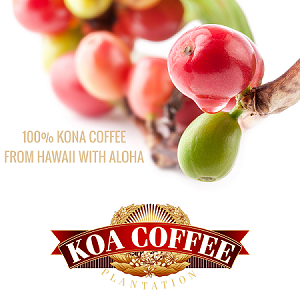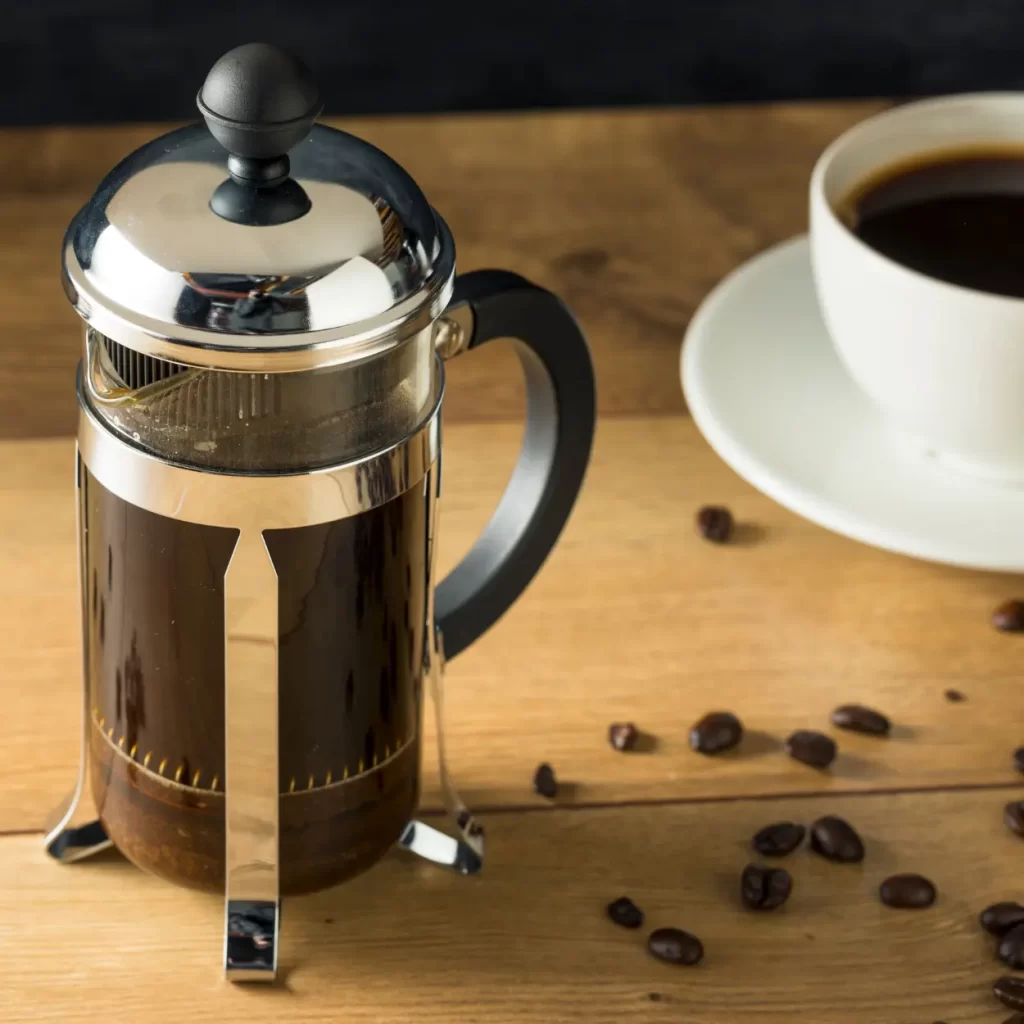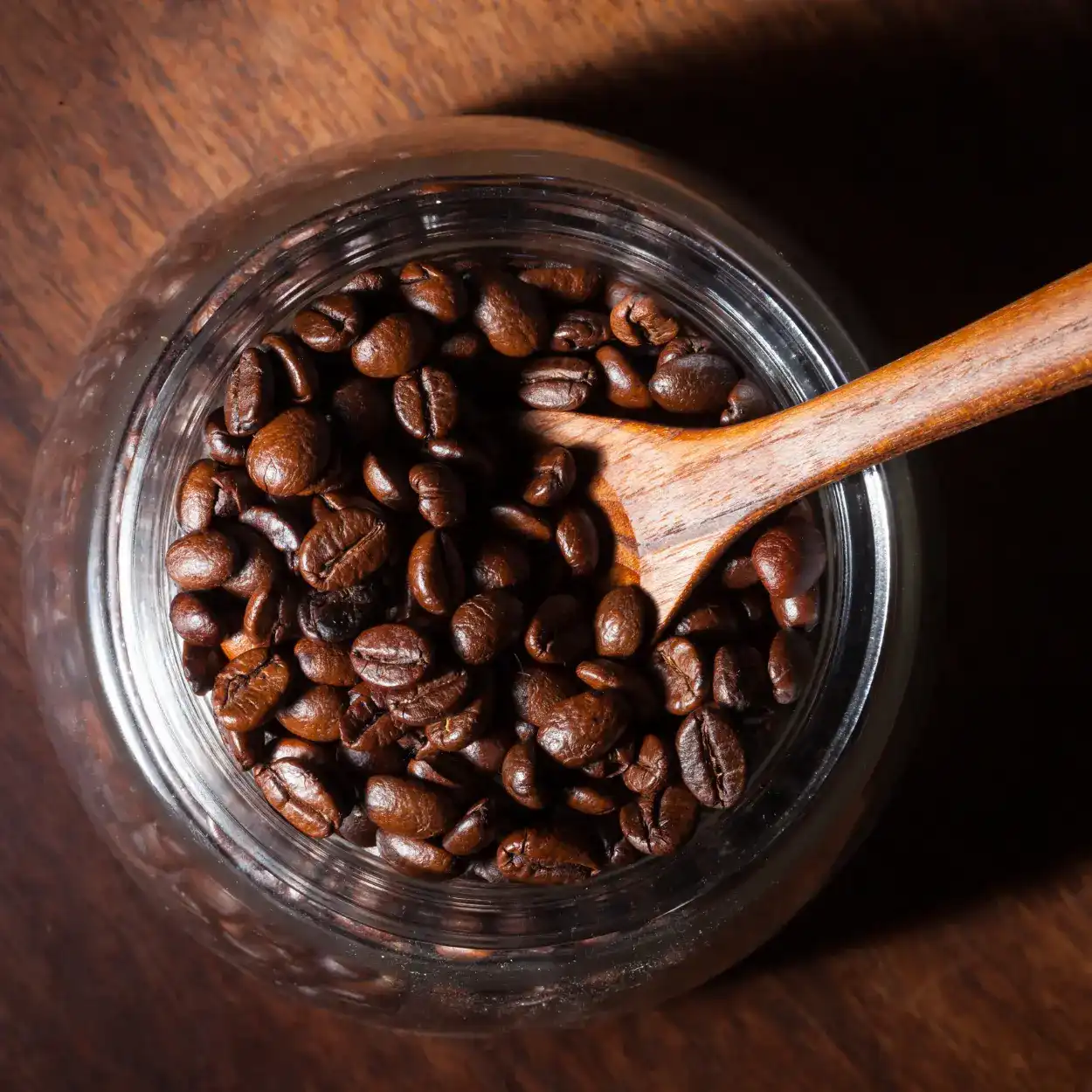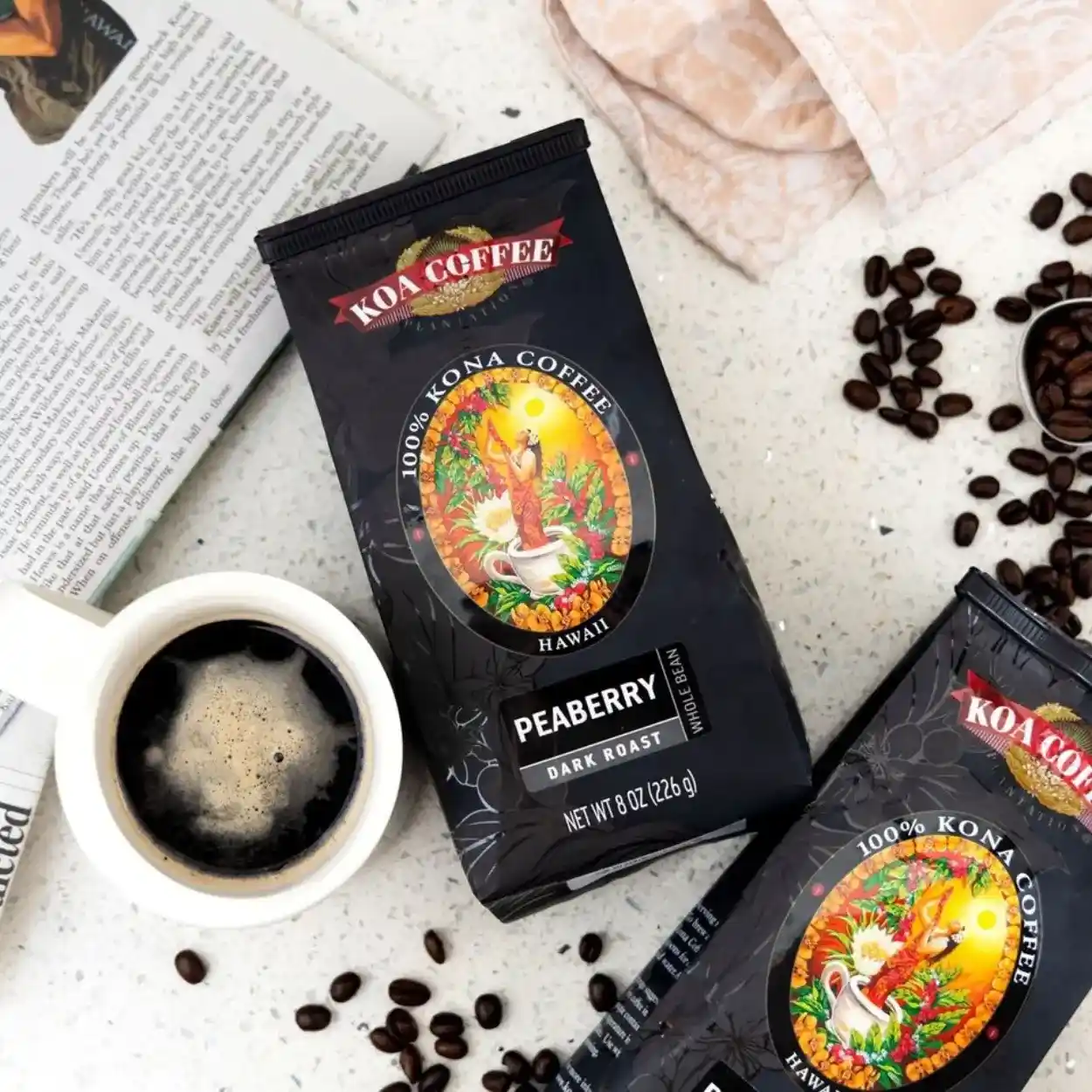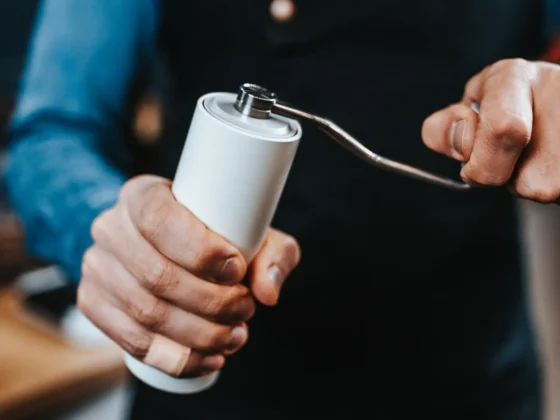Brazilian coffee has long been celebrated for its rich flavors and unparalleled quality, making it a staple in coffee cups around the world. In this comprehensive article, we’ll journey through the illustrious history of coffee from Brazil, uncover the secrets behind its unique taste, and shed light on some of the best Brazilian coffee beans on the market. Whether you’re a casual coffee drinker or a connoisseur, our expert tips and insights into Brazilian coffee brands will deepen your appreciation for this beloved brew. Dive in and discover the aromatic world of Brazilian coffee!
Brazilian Coffee Beans: Key Takeaway
- Diverse Flavors: Brazilian coffee beans boast a broad spectrum of flavors, from fruity and floral notes to rich, chocolatey undertones, highlighting the country’s varied growing regions.
- Historical Significance: The coffee trade has deeply influenced Brazil’s socio-economic landscape, driving its economic growth and shaping its cultural identity for centuries.
- Top Brands: Brazilian coffee brands are globally recognized for consistently delivering high-quality beans that cater to both commercial and specialty coffee markets.
- Brewing Mastery: Expert tips reveal that methods like the French press and pour-over are ideal for extracting the intricate flavors of Brazilian beans to their fullest.
- Sustainability Focus: Modern Brazilian coffee farming emphasizes sustainability, with farmers proactively adapting to climate change challenges and embracing environmentally-friendly practices.
Best Brazilian Coffee Brands
Brazil, renowned for its captivating culture, scenic beauty, and vibrant carnivals, has also secured its place on the global map for its coffee. When diving into the realm of the best Brazilian coffee beans, we encounter blends that not only tantalize the taste buds but also encapsulate the very essence of coffee culture in Brazil. Here, we embark on a journey through three standout varieties that exemplify the rich tapestry of Brazilian coffee.
Volcanica Brazil Yellow Bourbon Coffee
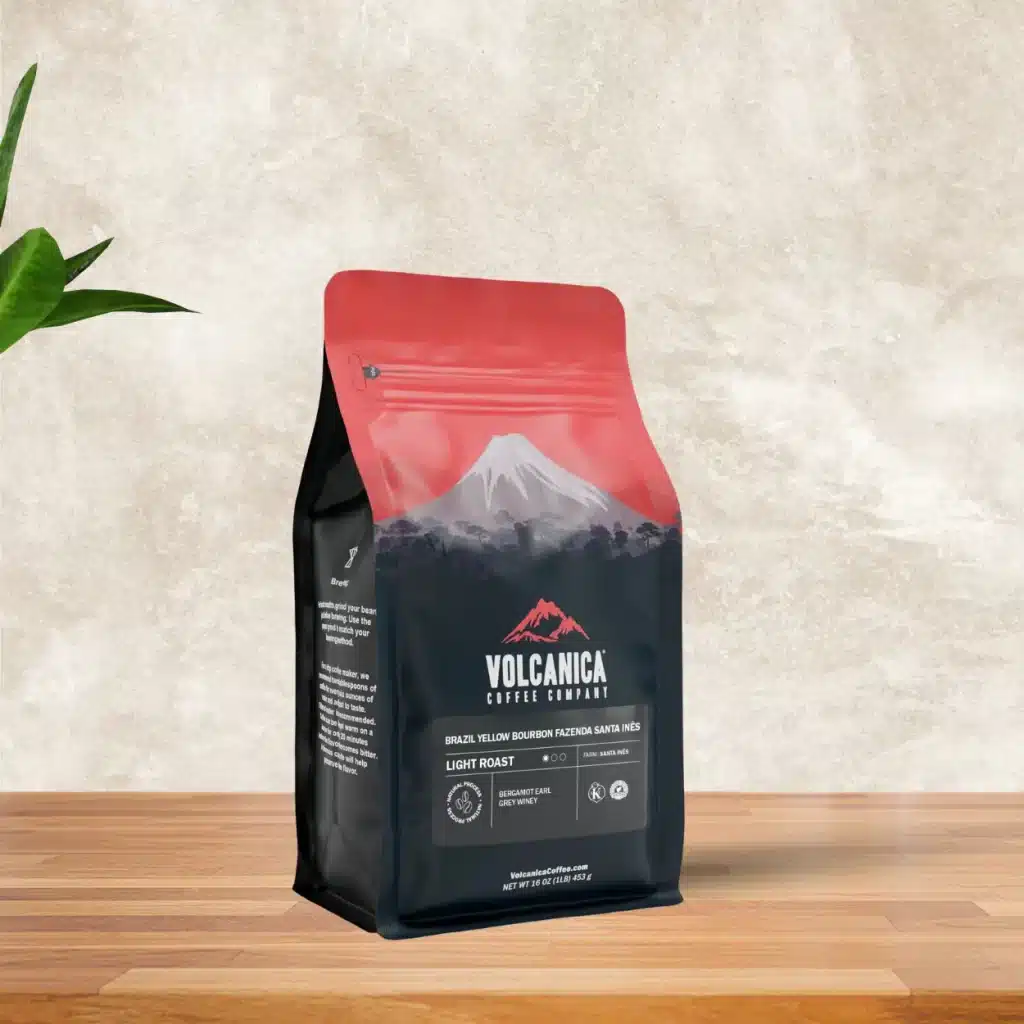
Fazenda Santa Ines’ Brazil Yellow Bourbon Natural, a prestigious offering from Grupo Sertão, has firmly stamped its mark in the annals of coffee history. Hailing from the São Sebastião da Grama municipality, this coffee has clinched victory at the revered 14th Brazil Cup of Excellence, demonstrating its unmatched caliber. Beyond the beans’ distinctive flavor, the story of its origin is equally fascinating. The Grupo Sertão estate, boasting a legacy since 1979, represents a beacon of quality production and unwavering commitment to ecological balance. The group’s rigorous processes, from the selection of seeds to the meticulous hand-harvesting techniques, are underpinned by a dedication to excellence. This pursuit of perfection is palpable in each cup, making it an exemplar of the finest coffee in Brazil.
Coffee Highlights:
- Estate: Fazenda Santa Ines’
- Official Recognitions: Kosher Certification, Champion of Cup of Excellence 2023 – Ranked 14th
- Variety: Yellow Bourbon
- Flavor Impressions: Citrusy Bergamot, Subtle Earl Grey, and hints of Wine-like Notes
- Roast Level: Gentle Light Roasting
- Processing Method: Natural Coffee Processing
- Drying Technique: Raised Beds Inspired by African Traditions
- Country of Origin: Brazil
- Geographical Region: São Sebastião da Grama
Brazilian Coffee by Black Ink Coffee Company

For those seeking not just a drink, but an experience, the Brazilian coffee from Black Ink Coffee Company emerges as the brew of choice. Grown in the sun-kissed hills of Brazil, these beans exude a character that transcends the ordinary. It’s a blend that mirrors the resilience and vigor of Brazil’s spirit. Each sip narrates a tale of dedication, echoing the relentless pursuits of dreamers and doers alike. It’s more than a mere beverage; it’s a testament to the power of unwavering toil and vision. A must-try for anyone passionate about coffee, this blend resonates with the energy and ethos of Brazil.
Coffee Highlights:
- Taste Profile: Cocoa, Creamy Peanut, Honeyed Nut
- Roasting Intensity: Moderate Roasting
Brazil Nossa Senhora Do Carmo Natural by Equator Coffees
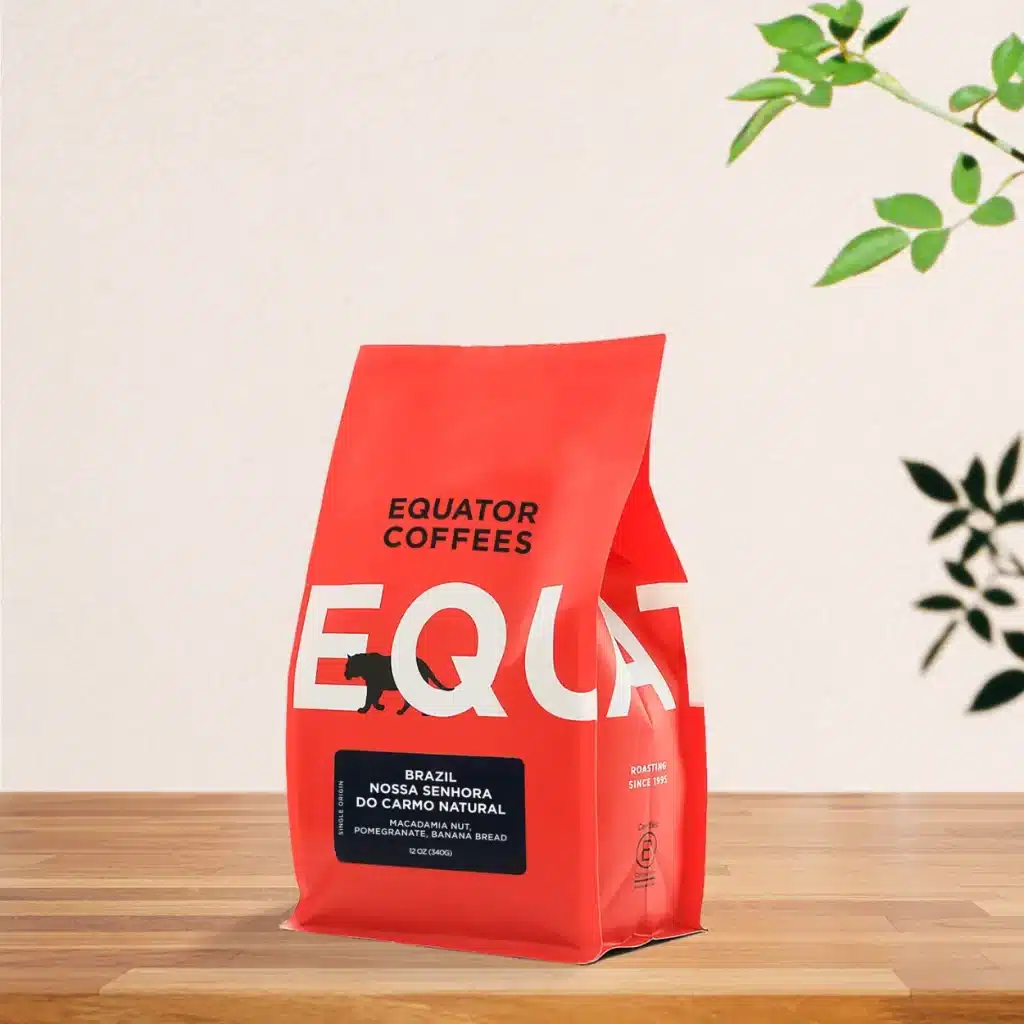
Brazil Our Lady of Carmo Natural by the Equator Coffees is nothing short of a symphony for the senses. With a backdrop of Francisco Isidro Dias Pereira’s sprawling estate in Minas Gerais, every bean in this blend has been crafted to perfection. Notably sweet and bursting with flavors reminiscent of macadamia nut, pomegranate, and banana bread, it’s a coffee that captivates from the first whiff to the last sip. The rich history of the Bourbon variety, introduced to Brazil in the 1860s, coupled with the natural processing method, imparts this blend with its unique flavor profile. Beyond the tantalizing tastes, Equator Coffees’ commitment to sustainability and traceability shines through, ensuring that every cup is not just delicious but also ethically crafted.
Coffee Highlights:
- Origin: Carmo de Minas, Minas Gerais, Brazil
- Taste Impressions: Smooth and remarkably sweet with flavors of macadamia nut, pomegranate, and banana bread
- Roast Level: Lightly Roasted Coffee
- Estate: Fazenda Nossa Senhora do Carmo
- Elevation: 3,950 feet
- Varietal: Yellow Bourbon
- Processing: Natural
- Special Mention: Secured third position in the COCARIVE internal quality contest
Brazil Medium Dark Roast by Cooper’s Cask Coffee
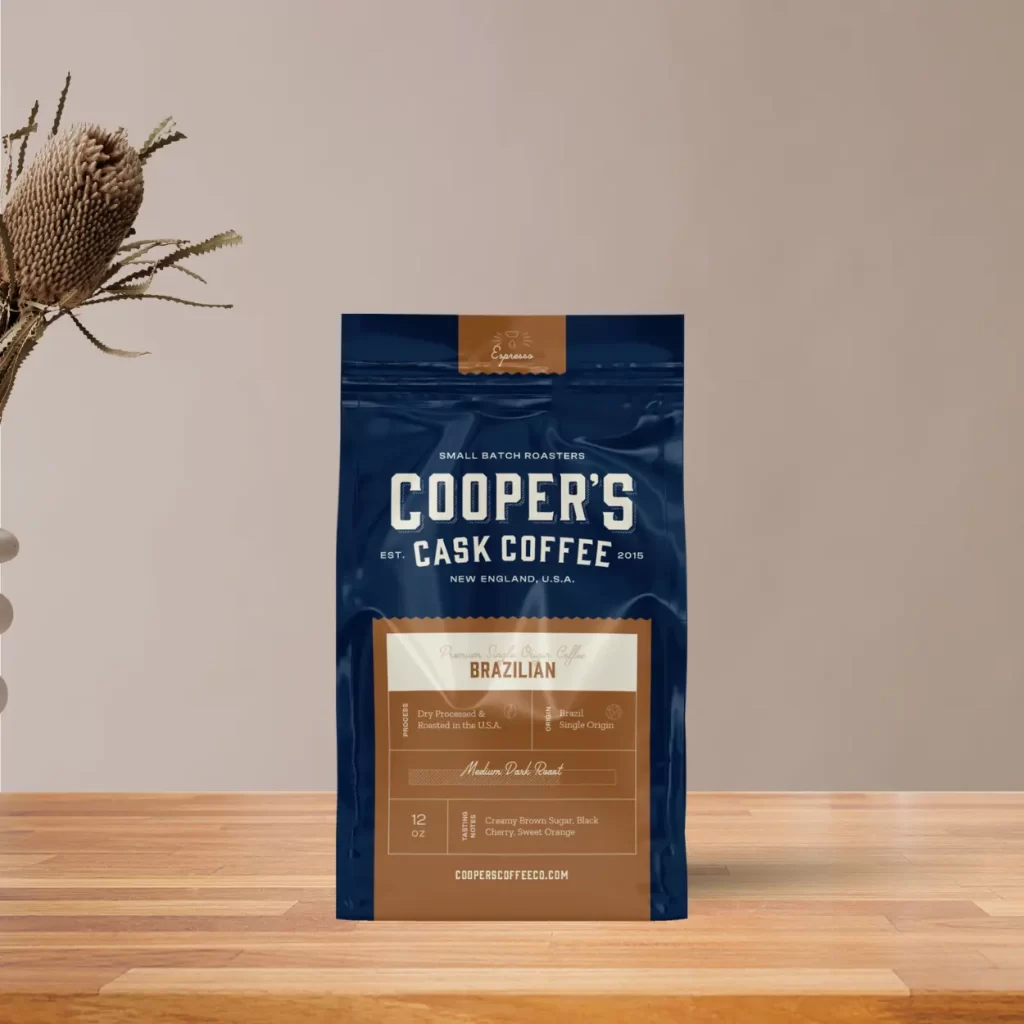
Brazil, renowned as the world’s largest coffee exporter, has etched its mark on producing coffee beans exuding smoothness, subtle acidity, and delightful sweetness. Cooper’s Cask Coffee, through their artisanal small-batch roasting approach, accentuates these qualities in their single-origin Brazilian beans, giving coffee enthusiasts an experience laced with creamy brown sugar, tantalizing black cherry, and zest of sweet orange. There’s no need for a passport to bask in a perfectly curated shot of espresso. Master roasters at Cooper’s Cask Coffee embody dedication, ensuring each bag of their Brazilian medium-dark roast espresso encapsulates the dynamic flavors Brazil is celebrated for. Their unwavering commitment to quality is evident through their meticulous roasting process, carefully orchestrated to illuminate the finest attributes of this exceptional Brazilian bean.
Highlights:
- Origin: Brazil
- Roast: Medium Dark Roast
- Tasting Notes: Brown Sugar & Black Cherry, Creamy Brown Sugar, Sweet Orange
- Processing: Dry Processed & Roasted in the U.S.A.
- Special Mention: Crafted for those who value an espresso that stays true to its source.
Brazil Catucaia-Acu Iapar Coffee by Volcanica
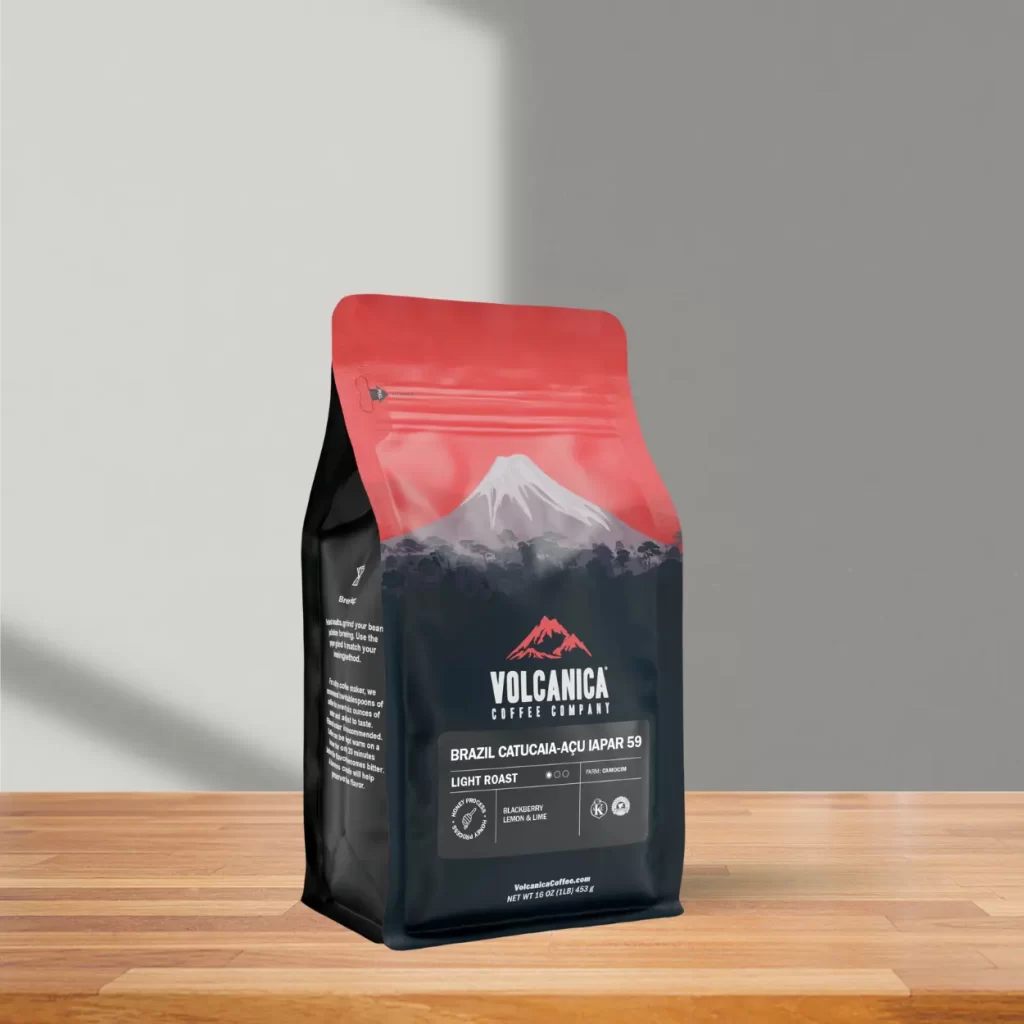
Emerging from the coffee-rich terrains of Brazil, the Açu Iapar 59 variety is a testament to innovation and meticulous cultivation. This variant, birthed in the 1970s by the Instituto Agronômico do Paraná (IAPAR), is a blend of the Mundo Novo and Caturra plants, intertwining resilience, abundant yield, and disease resistance. Its name, Açu Iapar 59, is rooted in the specific plot where this coffee marvel was first cultivated and evaluated, with its notable qualities quickly cementing its status among Brazilian coffee producers.
Fazenda Camocim’s commitment to sustainable practices is highlighted in their nurturing of the Açu Iapar 59. The farm harnesses biodynamic agricultural techniques, transcending traditional organic farming, and placing paramount importance on natural formulations to bolster soil health and promote biodiversity. Their Honey Process Coffee, harvested at the pinnacle of ripeness and processed through time-honored methods, translates to a coffee rich in caramel and chocolate undertones with a hint of citrus. Choosing this biodynamically grown coffee is more than just indulgence in taste; it’s a nod to sustainable, eco-friendly farming.
Highlights:
- Origin: Brazil
- Region: Espirito Santo
- Farm: Fazenda Camocim
- Roast: Light Roast
- Tasting Notes: Blackberry, Lemon, Lime
- Processing: Honey Process Coffee
- Drying: African-Raised Beds
- Varietal: Açu Iapar
- Certifications: Kosher Certified, Biodynamic
As the quest for the best Brazilian coffee beans continues, these selections offer not just an immersion into the rich tapestry of coffee in Brazil but also a glimpse into the passion and precision of those who bring Brazil coffee to our cups.
The Rich History of Brazilian Coffee
The story of Brazilian coffee is a tale intertwined with the nation’s socio-economic fabric, its political dynamics, and its global influence. From the initial plantings in the 18th century to its current status as a major global coffee powerhouse, the journey of coffee in Brazil has been both fascinating and impactful.
The Origins of Coffee in Brazil
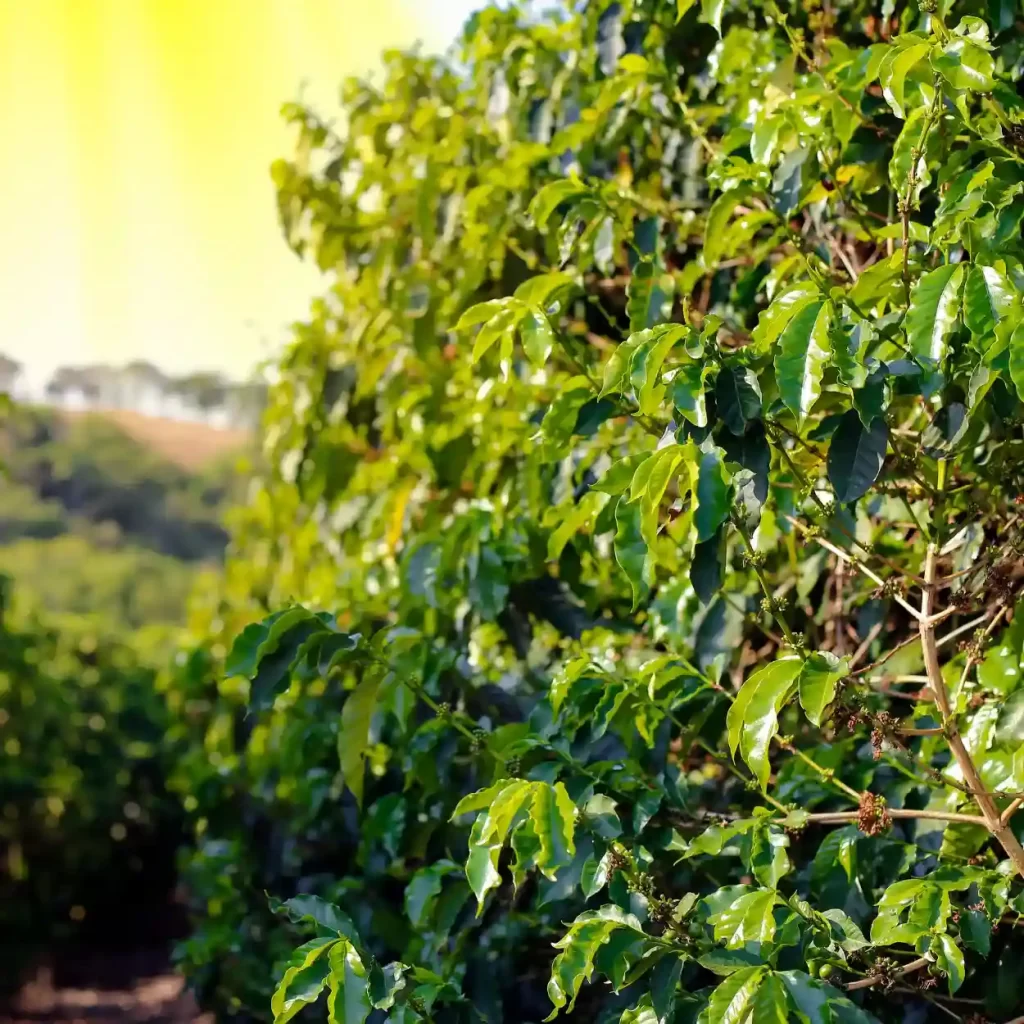
Brazil’s tryst with aromatic beans began in the 18th century. Legend has it that it was Francisco de Mello Palheta who, during an official visit to French Guiana, smuggled the first seeds of coffee into Brazil, using the allure of his personality. He was said to have received a bouquet of flowers from the Guiana governor’s wife in which coffee seeds were clandestinely hidden. (1)
While the romantic essence of the interaction has achieved legendary status, records indicate that Palheta was dispatched to French Guiana by the governor of Maranhão e Grão-Pará in the northeastern region of Brazil. Palheta subsequently recounted his successful retrieval of myriad seeds and numerous plants.
- 1727: The year when coffee seeds were first brought to Brazil.
- 1770: The expansion of coffee from Pará to Rio de Janeiro occurred, yet its cultivation was primarily for domestic use.
- 1900s: The zenith of its contribution to global coffee output was seen in the 1920s; the 19th century’s commencement saw heightened American and European demand, initiating the initial coffee boom.
Coffee Migration and Slavery in the Brazil
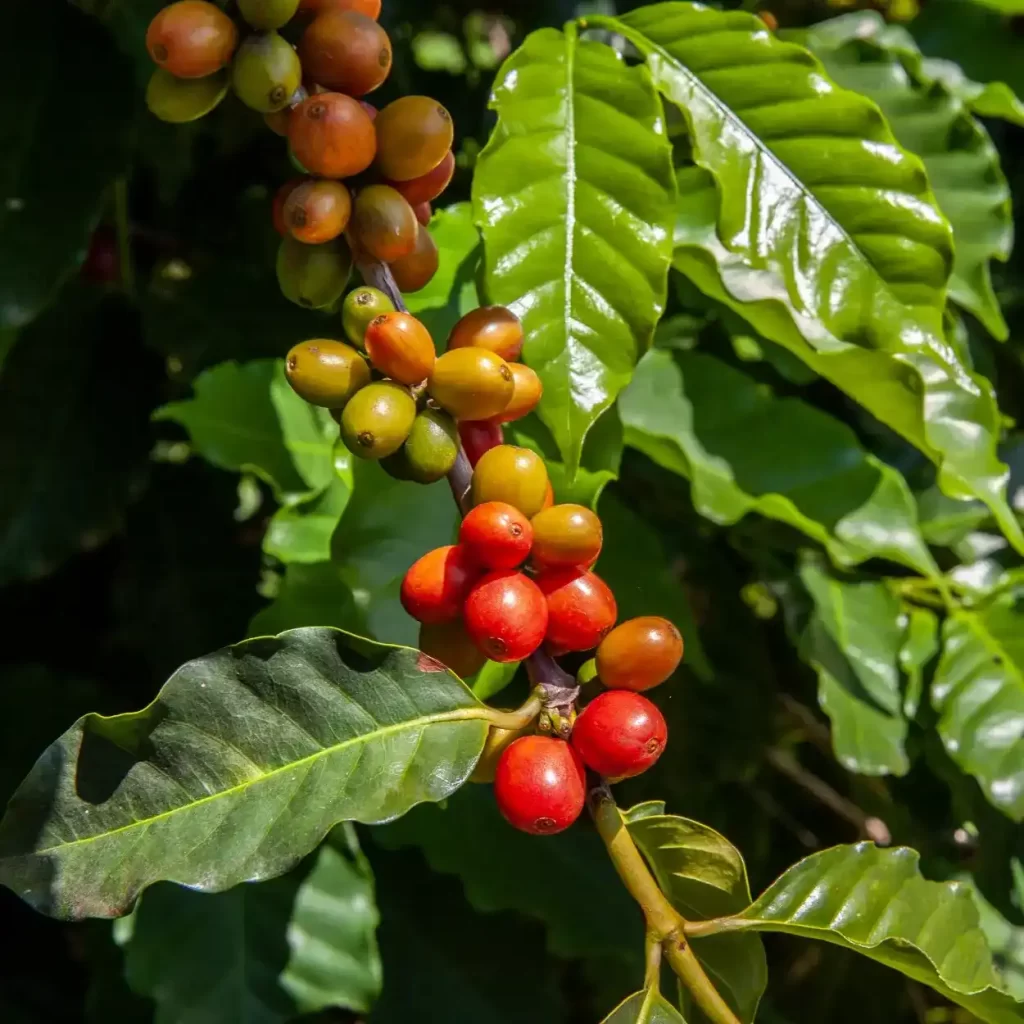
As the westward migration of coffee unfolded in São Paulo, cultivators encountered multifaceted challenges. These encompassed the imperative for augmented productivity, the dearth of enslaved labor force, the escalating expenses within the slave market, and a burgeoning antipathy towards the institution of slavery.
Although Brazil’s formal abolition of slavery was deferred until 1888, the trajectory towards its dissolution gained momentum through several stratagems. Notably, the Aberdeen Act, ratified in the United Kingdom in 1845, conferred jurisdiction upon the Royal Navy to intercept and inspect any Brazilian vessels suspected of engaging in slave transportation, subsequently leading to the detainment of slave traffickers.
The enactment of the Law of Free Birth (also referred to as the Rio Branco Law) in 1871 marked a significant milestone. It mandated emancipation for all newborns of enslaved parents, as well as slaves owned by the state and the royal family. Under this law, the proprietors of the enslaved parents were tasked with nurturing the children until they reached the age of 21, at which point the state would assume custody in exchange for pecuniary recompense.
The denouement of slavery materialized in Brazil with the advent of the Lei Áurea, or the Golden Law, on May 13, 1888. This expeditiously paved the way for a political paradigm centered on immigration, aimed at furnishing the burgeoning coffee plantations with the necessary workforce.
Brazil’s Role in the Global Coffee Trade
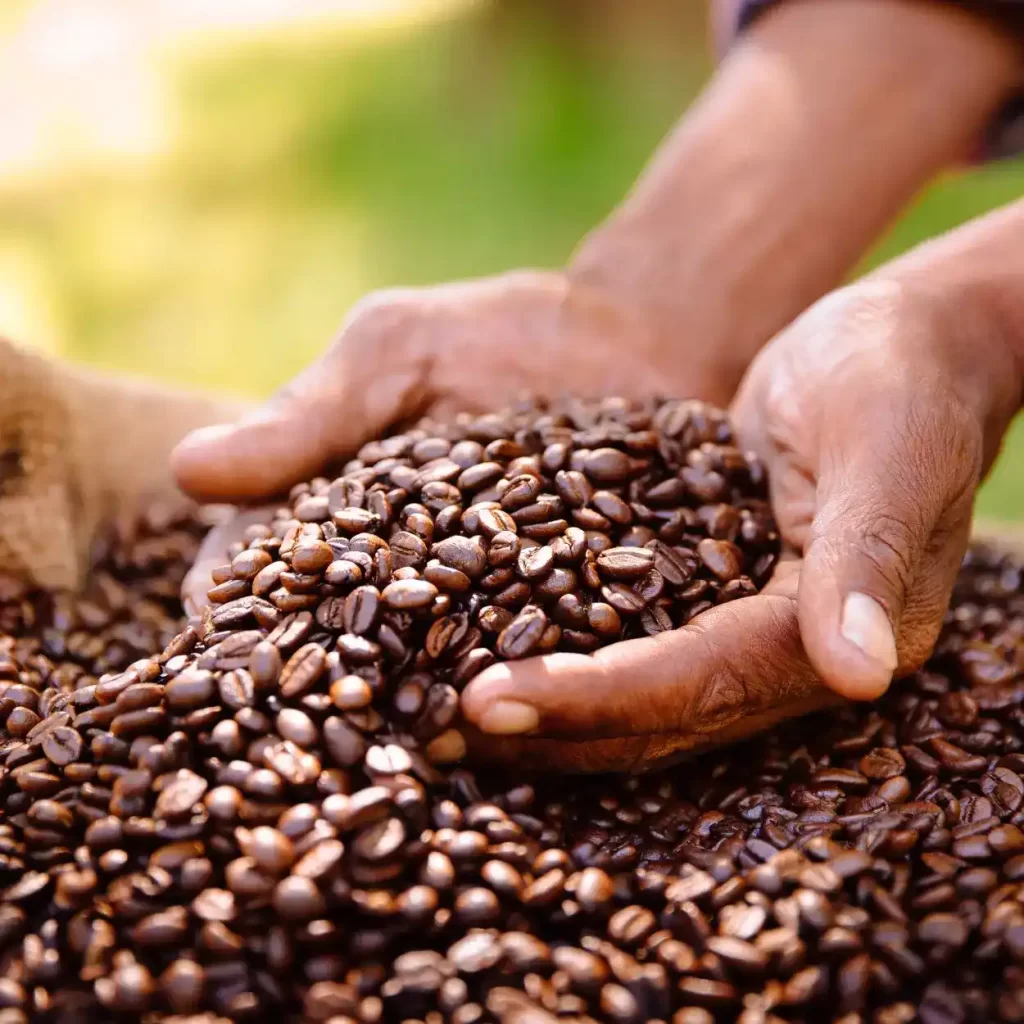
Brazil’s vast expanse of suitable agricultural land and favorable climates soon saw the nation becoming a dominant player in the world coffee market. By the 20th century, Brazil’s role was undeniable.
- Production: For over 150 years, Brazil has remained the world’s largest coffee producer, consistently contributing around a third of the entire global coffee supply.
- Innovation: The introduction of new cultivation techniques, combined with vast research initiatives, solidified Brazil’s pioneering role.
- Coffee Exchange: The country played a significant role in setting up coffee prices globally. The “Valorization” is a historic example wherein the Brazilian government bought surplus coffee beans to maintain price stability in the 19th century. (2)
Historic Coffee Plantations and Their Significance
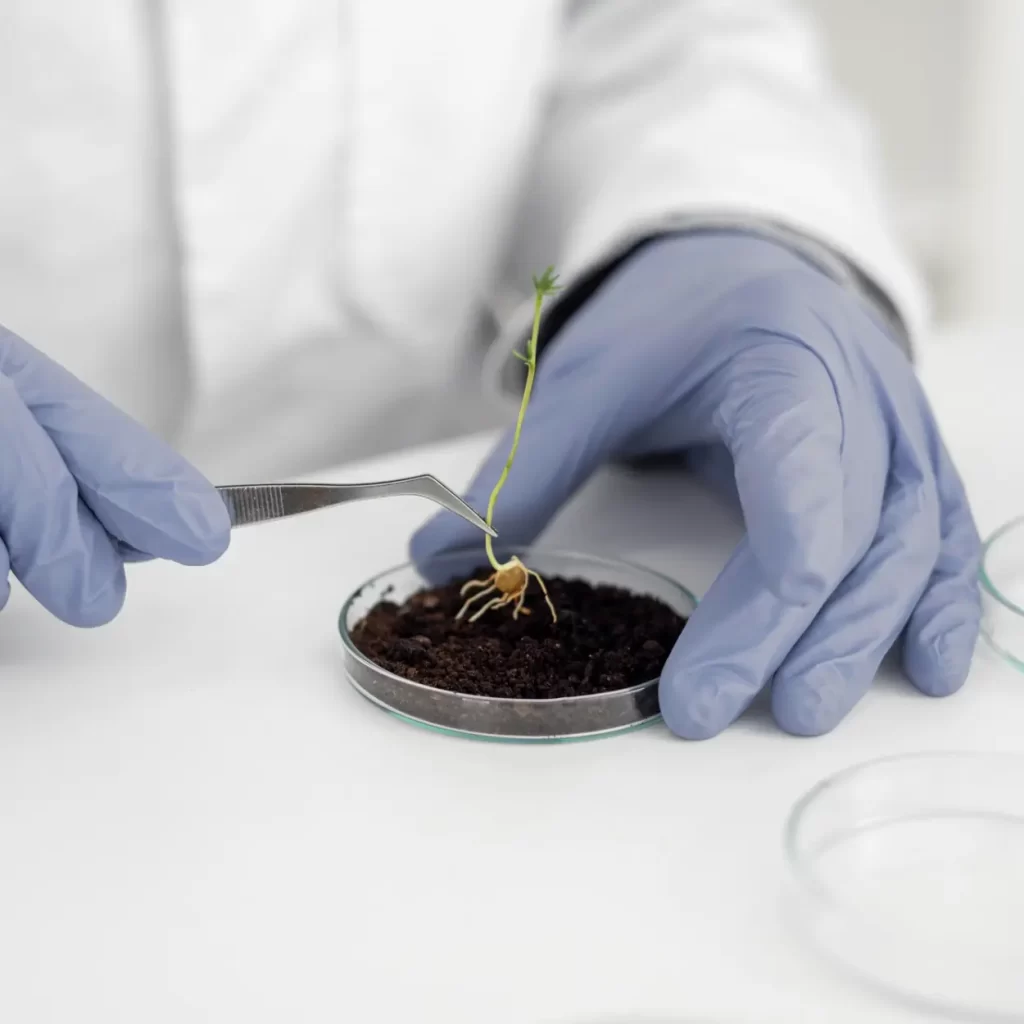
The majestic coffee plantations of Brazil not only boosted its economic prowess but also laid the foundation for its socio-cultural fabric.
- Economic Significance: The massive export of Brazil coffee beans in the 19th and early 20th centuries led to Brazil’s economic boom. The infrastructure developed around coffee exports, from railways to ports, played a significant role in the country’s modernization.
- Cultural Impact: As coffee plantations flourished, they drew a plethora of immigrants, leading to a cultural melting pot. Cities like São Paulo grew rapidly due to the coffee economy, fostering a blend of cultures.
- Quality: Esteemed research establishments like the Instituto Agronômico de Campinas (IAC) have heightened plant vitality, bolstered resistance against maladies and pests, and amplified overall productivity. Progress in mechanized harvesting and post-harvest techniques has not only yielded escalated productivity but has also elevated the caliber of coffee.
From its covert introduction to its meteoric rise on the global stage, the journey of Brazilian coffee is a testament to the country’s resilience, innovation, and passion for this beloved beverage.
Distinctive Taste Profile of Brazilian Beans
Brazilian coffee is renowned globally for its unique and diverse flavor profiles. The nation’s vast geographical diversity, combined with a plethora of cultivation techniques, has given rise to a spectrum of flavors that cater to a variety of palates. From the gentle notes of chocolate and nut to the vibrant fruity undertones, coffee from Brazil is a sensory journey in each sip.
Regions and their Flavor Profiles

Brazil’s expansive terrain, with its varied altitudes and climates, results in diverse taste experiences hailing from different coffee-growing regions:
- Minas Gerais: Arguably the most significant coffee-producing state in Brazil, beans from this region often have a medium body with flavors ranging from caramel to nuts. Notably, the Sul de Minas region in Minas Gerais is celebrated for its round, sweet, and medium-bodied coffees.
- Espírito Santo: Coffee in Brazil from this state, particularly the Conilon variety, is known for its robust character, with earthy tones and a lingering finish.
- Bahia: Beans from this northeastern state exhibit fruity and chocolatey notes with vibrant acidity.
- São Paulo and Paraná: These regions, particularly the Mogiana and Norte Pioneiro districts, are lauded for producing coffee with soft fruity nuances, balanced sweetness, and a velvety body.
Factors Affecting the Taste of Brazilian Coffee
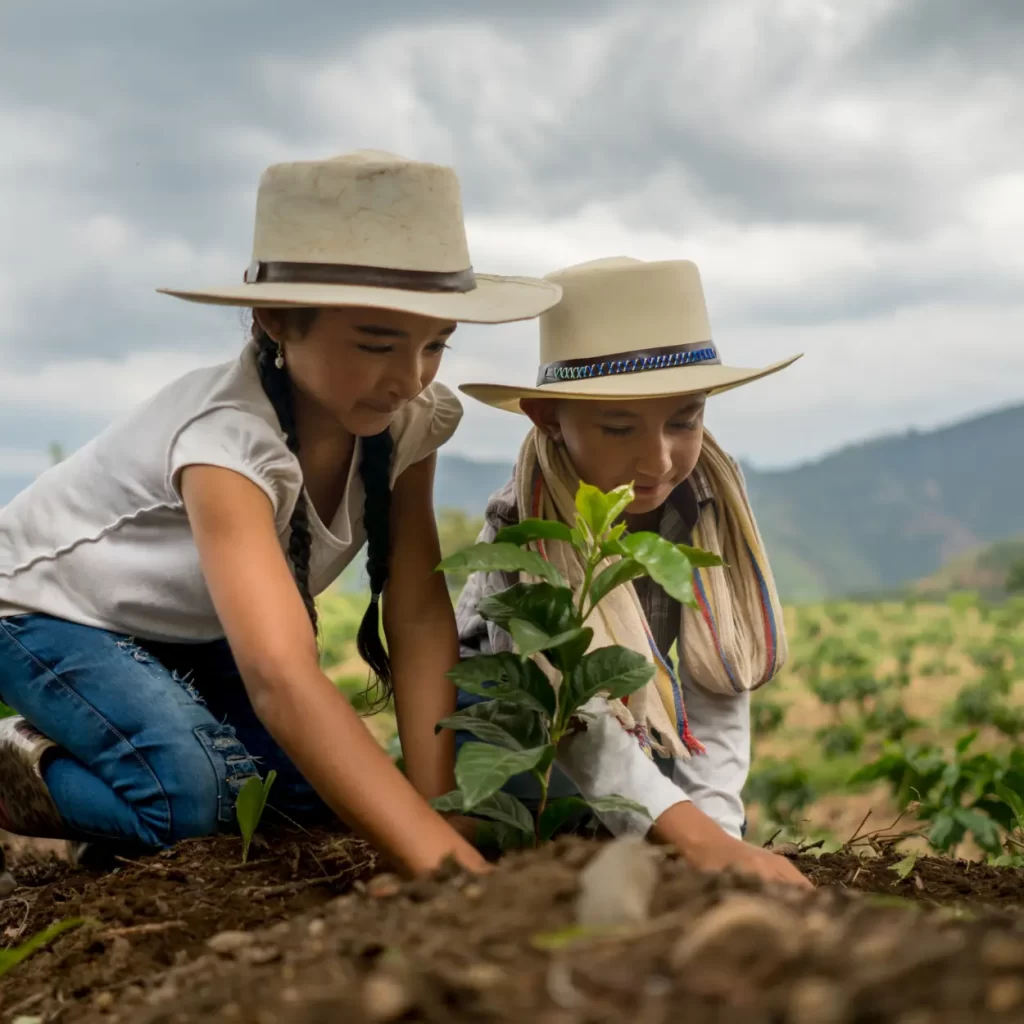
Various elements converge to shape the flavor profile of the best Brazilian coffee beans:
- Altitude: The altitude at which coffee is grown can vastly influence its taste. Higher altitudes often result in beans with brighter acidity, while lower regions tend to produce coffee with milder acidity and a fuller body.
- Soil Composition: Brazil’s vast landscape consists of varying soil types, from volcanic to clayey. The minerals and nutrients in the soil can directly affect the taste of the coffee beans.
- Processing Methods: The way beans are processed post-harvest, be it natural, pulped natural, or washed, greatly shapes their final flavor profile.
- Climatic Conditions: Brazilian coffee, given the country’s size, experiences a wide range of climates, from tropical to temperate. The distinct weather patterns in each region contribute significantly to the coffee’s taste.
Popular Brazilian Coffee Bean Varieties

Brazil is home to several coffee varieties, each contributing to the vast tapestry of flavors:
- Bourbon: Recognized for its sweet taste and strong acidity, Bourbon beans often boast a chocolatey hint, making it a popular choice among baristas.
- Mundo Novo: A hybrid of the Bourbon and Typica varieties, this bean is resilient and has a mild to medium body with delightful fruity undertones. (3)
- Catuai: This dwarf variety is known for its resistance to wind and rain. Flavor-wise, it presents a balanced profile with mild acidity and hints of caramel.
- Catucaí: A cross between Mundo Novo and Caturra, this bean brings forth a nutty flavor profile with a pronounced acidity.
In essence, the vast and vibrant tapestry of flavors in Brazilian coffee is a testament to the country’s rich agricultural diversity and innovative cultivation techniques. Whether you’re a casual coffee drinker or a connoisseur, there’s undoubtedly a cup of Brazilian delight waiting for you.
Expert Brewing Tips for Brazilian Coffee
A perfect cup of Brazilian coffee is a harmonious blend of the right beans, method, and technique. Given the unique and diverse flavor profiles of coffee from Brazil, knowing how to brew it can elevate your coffee experience. Whether you crave the soft fruity undertones or the rich chocolatey notes, understanding the nuances of brewing will ensure you get the best from your beans.
Choosing the Right Roast for Your Palate
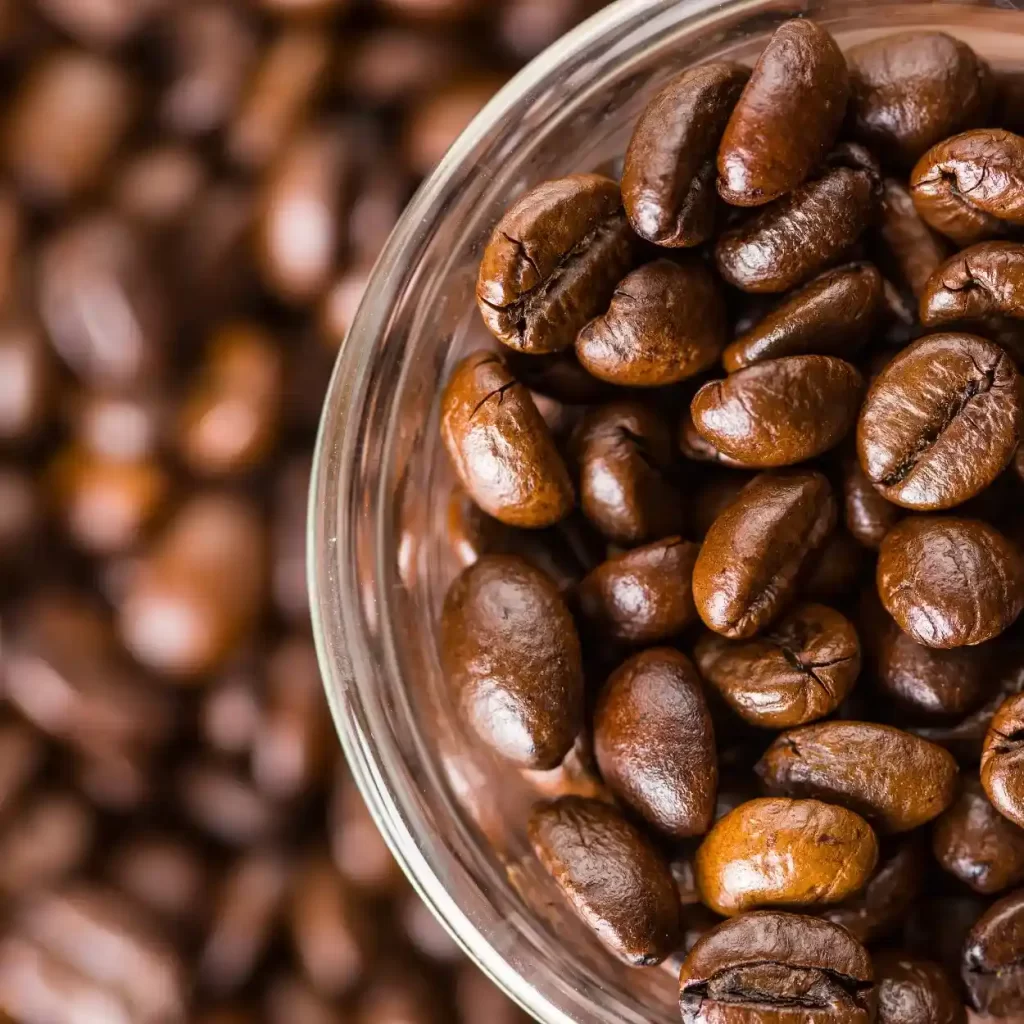
The roast level significantly influences the flavor of the coffee. Brazilian beans offer a wide range of flavors, and here’s how you can choose the best roast to complement them:
- Light Roast: This roast level retains the most original characteristics of the best Brazilian coffee beans. It brings out the vibrant fruity and floral notes, making it ideal for those who appreciate nuanced flavors.
- Medium Roast: This is a balanced roast, neither too light nor too dark. It highlights the beans’ inherent sweetness, often revealing caramel and nutty undertones, perfect for a balanced cup.
- Dark Roast: For those who crave intensity, the dark roast presents bold flavors. This roast amplifies the rich, chocolatey, and smoky elements, making it an excellent choice for fans of Brazilian bold coffee.
Best Brewing Methods for Brazilian Beans
To extract the full potential of Brazilian beans, it’s crucial to match them with the right brewing method:
- French Press: This method, with its coarse grind and longer steeping time, is excellent for highlighting the full-bodied and chocolatey notes of coffee from Brazil. It creates a dense, rich brew, capturing the essence of the beans.
- Pour Over: For those who love subtle flavors, the pour-over technique is ideal. It emphasizes the fruity and floral undertones, especially when using a medium or light roast.
- Espresso: Given the bold character of many Brazilian beans, they make an excellent base for espresso shots. The quick extraction process amplifies the intense flavors, delivering a powerful caffeine kick.
Tips to Enhance the Flavor of Your Brew
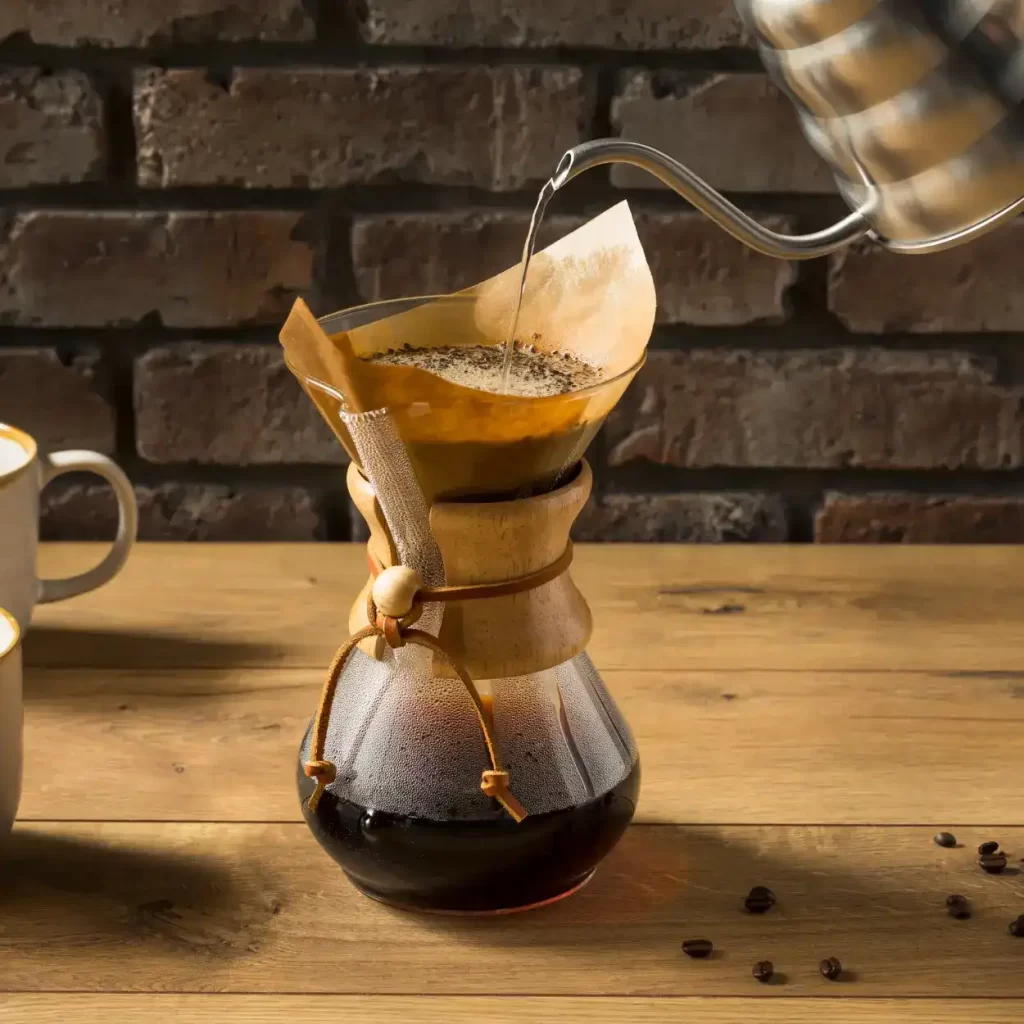
To make your coffee experience even more exceptional, consider these expert tips:
- Water Quality: Always use fresh, filtered water. Minerals and impurities in tap water can interfere with the flavors, masking the true taste of the beans.
- Grind Size: Adjust the grind size according to your brewing method. A coarser grind is ideal for the French Press, while a medium to fine grind works best for pour-over and espresso, respectively.
- Storage: Keep your beans in an airtight container away from direct sunlight and moisture. Freshly roasted beans retain their flavors best, so avoid storing them for prolonged periods.
- Temperature: Avoid boiling water, as it can over-extract the beans, leading to a bitter taste. Aim for water temperatures between 195°F to 205°F (90°C to 96°C) for optimal extraction.
Overall, a delightful cup of Brazilian coffee is not just about the beans but the love, care, and technique that goes into brewing it. With these expert tips, every sip will be a testament to the rich and varied flavors that Brazil has to offer.
Sustainable Coffee Farming in Brazil
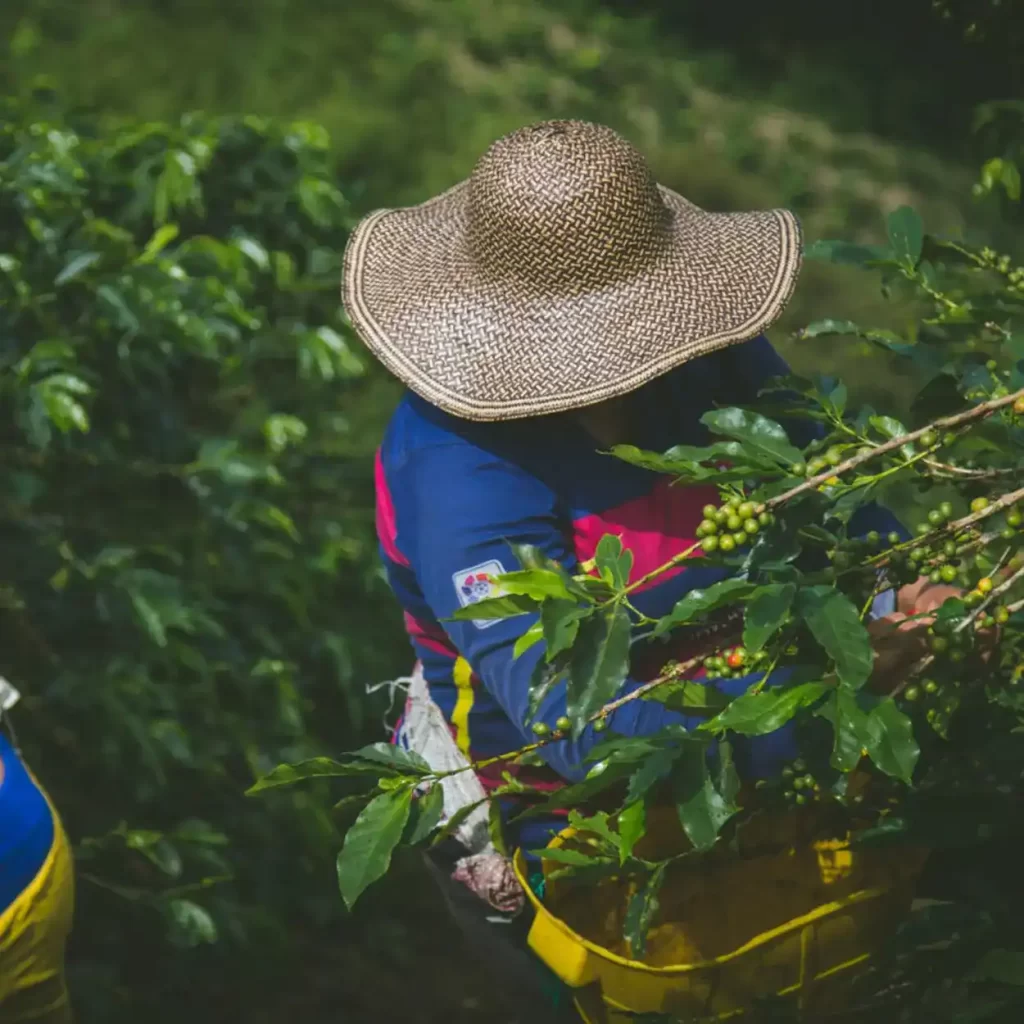
Brazil, as the world’s leading coffee producer, carries the dual responsibility of not just producing the best Brazilian coffee beans but also pioneering sustainable and ethical coffee farming practices. With growing global concerns about the environment and equitable trade, the country is stepping up to integrate sustainable methods into its age-old coffee production traditions.
The Rise of Organic Coffee Farming
Organic coffee farming is rapidly gaining momentum in Brazil, driven by both local and global demand for environmentally friendly products:
- Shift in Farming Practices: Many farms are transitioning away from synthetic pesticides and fertilizers, instead opting for organic and natural alternatives. This not only ensures the health of the soil but also promises a cleaner, toxin-free cup of coffee.
- Consumer Demand: With a global shift towards organic products, Brazilian coffee brands increasingly recognize the market potential and actively promote organic farming.
- Environmental Benefits: Organic farms often embrace biodiversity, fostering a healthier ecosystem that includes various plant species, insects, birds, and other wildlife.
Efforts to Combat Climate Change
Climate change poses a significant threat to coffee in Brazil, affecting the quality and yield. Brazil is, however, proactively tackling this issue:
- Reforestation Projects: Many Brazilian coffee farms are initiating reforestation projects to increase tree cover, which aids in carbon sequestration and creates microclimates beneficial for coffee growth.
- Water Conservation: Efficient irrigation systems and methods are being adopted to ensure water conservation, recognizing the growing concerns of water scarcity.
- Research & Development: Investments are being made in research to develop coffee varieties resistant to climate-induced diseases and temperature fluctuations, ensuring the continued production of top-quality beans.
Brazil’s Role in Fair Trade Coffee
As the world’s coffee production giant, Brazil plays a pivotal role in setting standards for the global industry:
- Supporting Small Farmers: Fair Trade initiatives in Brazil focus on supporting small farmers, ensuring they receive fair compensation for their produce, which in turn promotes better living standards and community development.
- Transparent Trading: Brazilian coffee brands under the Fair Trade banner are emphasizing transparent trade practices, enabling consumers to trace their coffee back to its source, and ensuring ethical production practices.
- Promoting Sustainable Farming: Fair Trade is not only about fair prices but also sustainable farming. By adhering to Fair Trade standards, farmers commit to sustainable and environment-friendly farming practices.
In essence, Brazil is not only leading the world in coffee production but is also setting an example in sustainable and ethical farming practices. Through a combination of traditional knowledge and innovative strategies, Brazil is ensuring that every cup of its coffee resonates with care for the environment and the community.
Exploring the Economic Impact of Brazilian Coffee
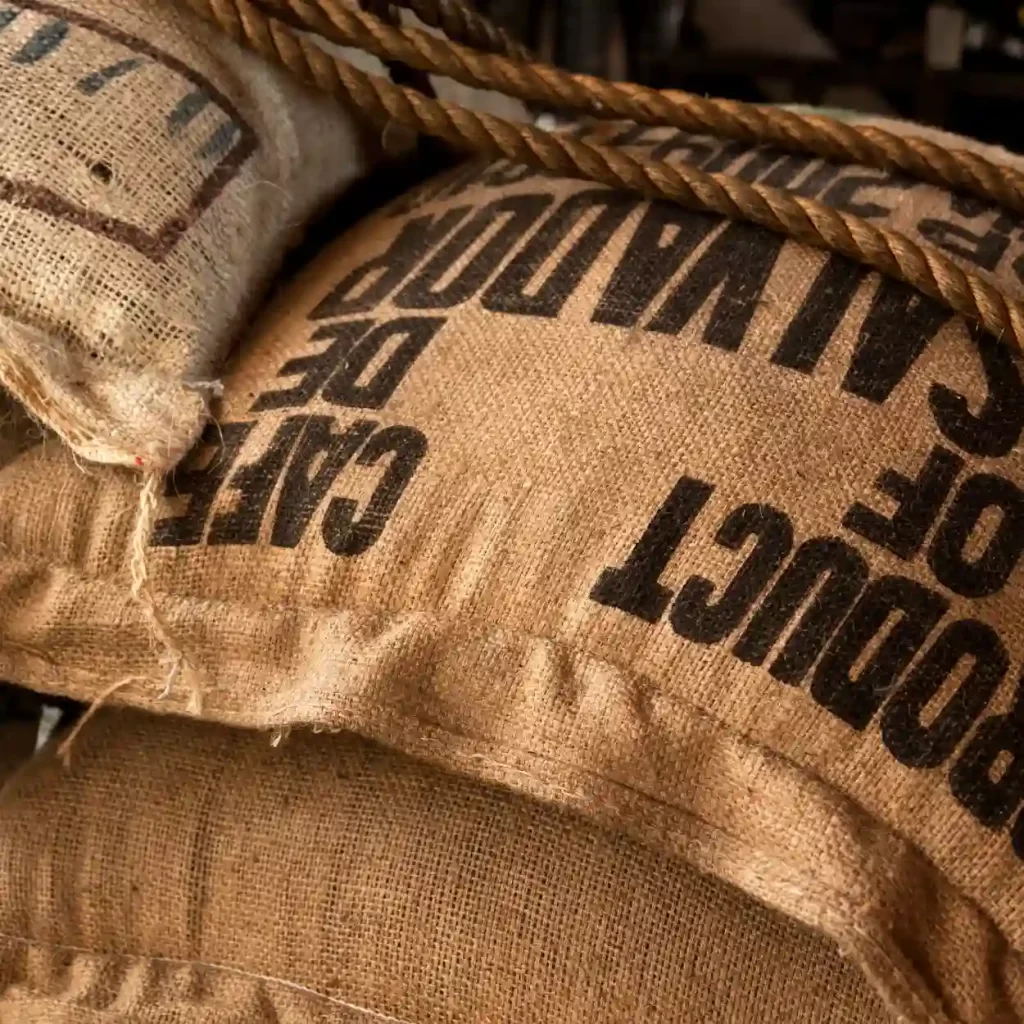
Brazil, known globally as the coffee giant, has its economic roots deeply intertwined with its coffee industry. From vast plantations to the bustling marketplaces of São Paulo, coffee from Brazil has played a paramount role in shaping the country’s economic landscape. Through the rich tapestry of its coffee history, Brazil has positioned itself as an irrefutable leader in the global coffee arena.
Brazil’s Position in the Global Coffee Market
Brazil’s coffee prowess is not just limited to its flavor-rich beans but extends to its dominant position in the international coffee market:
- Top Producer: Brazil consistently ranks as the world’s largest coffee producer, responsible for nearly a third of the entire global output. This prominent position is a testament to its vast arable lands and favorable climates.
- Quality & Diversity: Brazilian coffee beans are not just abundant but also diverse in flavor profiles. Their quality is renowned, with beans ranging from robust commercial grades to exquisite specialty coffees.
- Major Exporter: Brazilian coffee brands have a significant presence in international markets, making the country one of the top coffee exporters. Whether in European cafés or American households, Brazilian coffee is omnipresent.
The Relationship Between Coffee and Brazil’s Economy
Coffee’s role in Brazil’s economy is both historic and monumental:
- Economic Backbone: For several decades, coffee exports served as the primary driver of Brazil’s economic growth, helping to fund major infrastructure projects and bolster foreign reserves.
- Employment: The coffee industry provides jobs to millions, from farm workers in the plantations of Minas Gerais to traders in urban centers. It’s a significant source of livelihood for a vast segment of the population.
- Foreign Exchange: Coffee exports bring in a significant amount of foreign exchange, contributing to the strength and stability of the Brazilian currency.
Supporting Local Brazilian Coffee Farmers
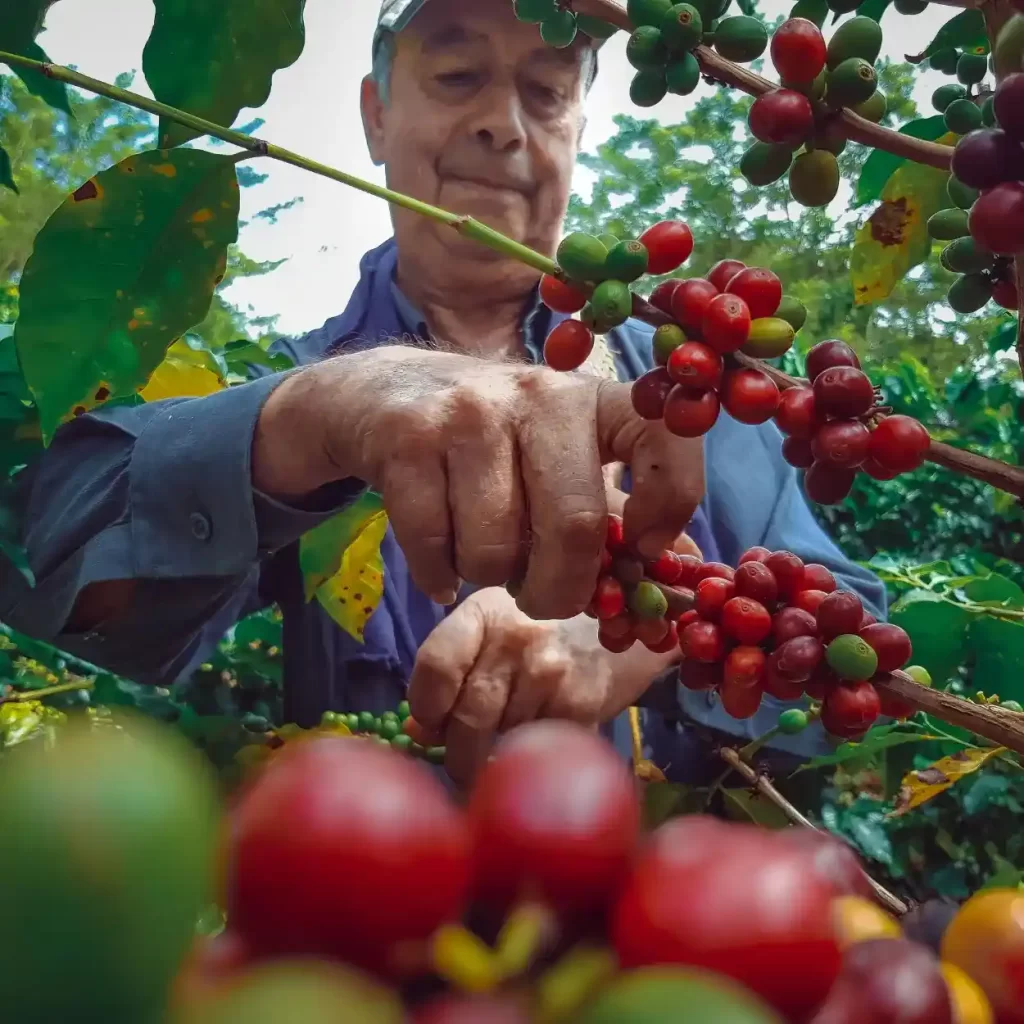
As the world becomes increasingly globalized, supporting local farmers remains crucial to ensure the continued success and sustainability of the Brazilian coffee industry:
- Fair Pricing: Initiatives are in place to ensure that local farmers receive fair prices for their produce. By ensuring they get a fair share, Brazil maintains the quality and integrity of its coffee.
- Education & Training: Various programs offer training to farmers in sustainable farming practices, efficient harvesting techniques, and post-harvest processing, ensuring that the coffee produced is of the highest quality.
- Community Development: Profits from the coffee industry are often reinvested in local communities, funding schools, healthcare, and infrastructure projects.
To sum up, the story of coffee from Brazil is not just about rich flavors and aromatic brews. It’s a tale of economic growth, global dominance, and a steadfast commitment to its people. As coffee continues to flow from the vast Brazilian landscapes to cups worldwide, its economic resonance echoes stronger than ever.
Conclusion
After journeying through the vibrant tapestry of Brazilian coffee, from its rich history to the nuanced flavors that set it apart, it’s evident that the nation’s beans hold a special place in the global coffee realm. The best Brazilian coffee beans are not just a testament to quality but also a reflection of the culture, passion, and dedication of those who cultivate them. As we’ve explored the top Brazilian coffee brands, we’ve gained not only knowledge but also a deeper appreciation for every cup we sip. Whether you’re exploring Brazil’s beans for the first time or revisiting them with renewed interest, remember that behind every brew is a story of tradition, innovation, and sheer love for coffee. Cheers to the unparalleled delight of Brazilian coffee!
FAQ
How has the coffee trade shaped Brazil's history?
The coffee trade has been pivotal in Brazil's economic growth, influencing its social structure and driving major infrastructural developments.
What brewing method is best suited for Brazilian coffee beans?
French press and pour-over are often recommended for Brazilian coffee beans to highlight their nuanced flavors.
How are Brazilian farmers adapting to climate change concerns?
Brazilian farmers are adopting sustainable farming practices, investing in research for resilient coffee strains, and implementing reforestation efforts.
Are all Brazilian coffee beans the same in flavor?
No, Brazilian coffee beans offer a wide variety of flavors, ranging from fruity and floral to nutty and chocolatey, depending on the region and processing method.

